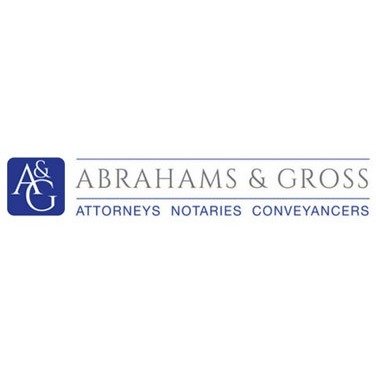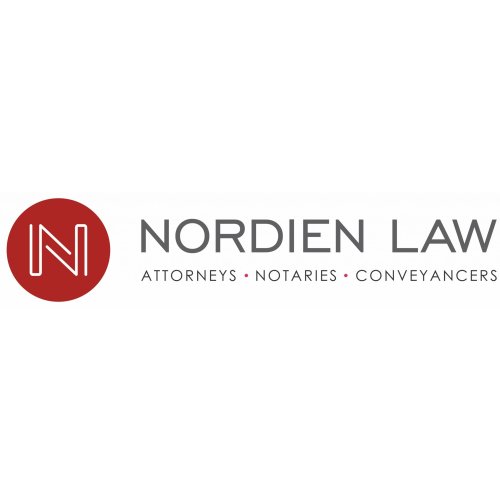
André Kirsten Lawyer
Cape Town, South Africa
I am an attorney specializing in Criminal Law, and here is some background on me:,
I obtained my legal degree at the University of the Free State in 1996 and proceeded to complete articles in the Northern Cape in 1997.
Being employed at the NPA as a prosecutor in 1998, I was serving both the district and regional courts in the Eastern Free State up until 2004. During this period I took responsibility and oversaw the overall Investigational activities of 2 detective branches who served the areas of my responsibility.
Most charges that generally come through criminal district and regional courts were covered during that time period. In addition to that I was heavily involved in Inquests both formal and informal. Children Court enquiries, maintenance trials and investigations as well as domestic violence applications and prosecutions.
In 2004 I transferred to Bellville Court. I prosecuted in both district and regional courts in Bellville until my resignation in 2005, at which time I joined the team at Legal Aid SA - Cape Town Justice Centre.
I spent the next 10 years at Legal Aid SA and in this period I toured Cape Town, Stellenbosch, Malmesbury and Bellville Justice Centre until my resignation in 2016 at which time I opened my own firm.
During my time at Legal Aid I mostly covered the regional courts and dealt extensively with serious matters like Murder, Rape, Armed Robbery, Fraud and contraventions of the financial institutions act, the bank act and much more.
It deserves to be mentioned that Legal Aid practitioners in general represents the majority of the accused going through the court system, and as a result I dealt with hundreds of trials during this period.
During my employment at NPA as well at legal aid, I attended numerous courses and seminars in the examination and testing of DNA evidence, finger print evidence, ballistic evidence and much more. All in the pursuit of mastering the finer skills when dealing with that special kind of evidence.
Free • Anonymous • Expert Lawyers
Need Personal Legal Help?
Connect with experienced lawyers in your area for personalized advice on your specific situation.
No obligation to hire. 100% free service.
Practice areas
Bail Applications
- Bail applications
- After hours bail applications at police stations - 24 hours a day
- Formal bail applications in court.
criminal Investigation process (By the Police)
- All Court Attendances during investigations process.
- Attending to police interrogations
- Attending to ID parades.
- Attending to any form of evidence gathering in protecting the clients rights.
Criminal Investigation ( By Defense)
- Attending to all investigations required in the pursuit of a successful defense, which includes but is not limited to the photographing of crime scenes, interviewing defense witnesses and more.
- Re-evaluation of DNA evidence for accuracy and possible contamination.
- Re-examination of any chemical testing, be that blood alcohol tests or otherwise in pursuit of a successful defense.
Criminal Trials
Conducting all aspects of criminal trial on behalf of the client.
Appeals
Conducting all aspects of the criminal appeal process on behalf of the client, be that applying for leave to appeal or prosecuting the appeal in the High Court against an unwanted conviction or sentence.
Our Labour Lawyers are specialists in labour cases in South Africa
Our Labour lawyers in Cape Town. specialize in assisting clients with labour matters of all kinds in Cape Town. Our assistance is available across the Cape Town peninsula as well as the Western Cape. Call 072 604 5324 for our expert assistance with your labour matter.
Do you need help with a CCMA matter? Are you facing disciplinary procedures at work? Are you an employer who requires legal assistance with disciplinary procedures at your place of employment? Do you need help with conflict resolution or an arbitration? We can assist you in with your labour matter. We deal with disciplinary trials, conciliations, arbitrations as well as internal appeals on labour matters. We give expert legal advice on labour cases.
Call us at the abovementioned number for expert help.
"Call our labour lawyers on 072 604 5324 "
Internal investigations
This is the process whereby any employer wishes to investigate any form of possible misconduct by an employee. The employer may appoint any employee in its’ employment to investigate any allegation and provide a report to the employer. The internal investigator could complete a brief report and submit to the employer for consideration. Should report indicate some form of misconduct the employer could have a decision with the affected employee in an attempt to resolve the issue, amicably. This is referred to as an “internal conciliation.”
Internal appeal hearings
Should an employer initiate an internal disciplinary hearing, and the decision of the Chairperson goes against the employee, such an employee has a right to appeal the decision of the Chairperson, before the matter is referred to the CCMA or the relevant Bargaining Council.
Conflict Resolution
In our working environment, conflict is evident between co-workers as well as between workers and management. We all have different approaches to managing conflict as are different conflict management styles. The path to conflict resolution could include the event(s) that caused the conflict, certain factors arise to worsen the situation, certain factors may stabilise the situation, certain factors could calm down the situation before a partial or total resolution is found. In the workplace it is often a good idea to obtain the assistance of a good negotiator to assist the parties to resolve the conflict between them in a constructive and amicable manner.
CCMA & Bargaining Councils
The CCMA is a statutory agency and operates independently from the State. The CCMA is the State funded institution and the centrepiece of dispute resolution in the workplace. Bargaining Councils are essentially “extensions” of the CCMA, as these Councils are accredited by the CCMA, for certain industries, to attend to Conciliations and Arbitrations.
Arbitration - the process
Arbitration is a method of dispute resolution. The Arbitration process can be best described as a compulsory process by which an arbitrator (appointed by the CCMA or Bargaining Council), to listen to both parties and their respective cases where after the Arbitrator will then decide on the dispute between the parties. The formal Arbitration process is always pre-ceded by a process of conciliation, in an attempt to find a speedy, amicable resolution.
Basic Conditions of Employment
The Basic Conditions of Employment Act & Regulations sets out exactly what the name of the Act states …. Basic Conditions of Employment, which are set out in this Act that stipulates a “minimum terms or conditions of employment”.
The purpose of this Act is to “give effect and to regulate the right to fair Labour Practices” as required by our Constitution, section 23(1), by “establishing and enforcing basic conditions of employment”
Amongst others the Chapter Two of the Act regulates Working time - and Chapter Three of the Act regulates all the different categories of Leave in the workplace.
It is important to note that certain categories of employees are entirely excluded from the Basic Conditions of Employment Act, while other categories of employees are excluded from some sections of the Act.
Chapter Two regulates all aspects of working hours, including ordinary hours of work, overtime, averaging hours of work, meal intervals, rest periods, pay for work on Sundays and Night work.
Besides section 7 of the Act that regulates “working time” it is important to note that this section does not apply to certain categories of employees such as : Senior Managerial staff, employees working less than 24 hours per month, employees working as sales staff travelling to the premises of customers, employees who are required to perform emergency work and most importantly employees that earn more than R 205 433.30 per annum.
Chapter Three regulates all categories of Leave such as Annual leave, Pay for Annual leave, Sick leave Maternity leave, Family responsibility- and Maternity leave. Chapter three however does not apply to an employee who works less that 24 hours per month for an employer and unless agreed otherwise, leave in excess of that leave provided for in the Act. (BCEA)
Section 27 of the Act (Chapter Three) Family Responsibility does not apply to employees who have worked for less that four months for an employer or works for less than four days a week for an employer.
Retrenchments: Dismissal Based on Operational requirements:
A dismissal for reasons of the employer’s operational requirements is often referred to as a “no fault dismissal”.
The definition of Operational requirements is set out in section 213 of the Labour Relations Act (LRA), meaning “Requirements based on the economic, technological, structural similar needs of an employer.”
As a rule, economic reasons are those reasons that relate to financial management of the employer. Technological reasons generally refer to introduction of new technology that effects the work relationship either by making existing jobs redundant or be requiring employees to adapt to a new technology or may relate to certain posts become redundant as a result of the restructuring of the employee’s business. For example, an employer facing economic difficulties may opt by continuing and optimising the business by doing so with less employees to optimise profits. In the current economic climate in SA the employer, many employers are opting for retrenchments simply to survive economically.
Retrenchment also referred to as “NO FAULT DISMISSALS”, clearly indicates that the dismissal is not any “fault” on the side of the affected employee(s). It is for this reason that the LRA places strict obligations on an employer to ensure that all possible alternatives are explored to prevent retrenchment and that employees that are retrenched are treated fairly.
The obligations on the employer are both Procedural as well Substantive. It is important to highlight that the procedural requirements on employers regarding dismissals for operational requirements are significantly, higher than the procedural requirements in dismissals for misconduct.
Section 189 and section 189A of the LRA set out the requirements for “Retrenchments”. As section 189A sets out the requirements for dismissals with more than 50 employees the focus of this article is on section 189 for no fault dismissals less than 50 employees.
The courts have placed a certain onus on employees that have to prove:
• A cause or reason for dismissal.
• The defined “operational requirements” on which the dismissal was based on.
• A fair procedure in accordance with section 189, and
• The facts upon which a finding of a “substantively fair reason” for the dismissal can be made.
The following is required from the Employer in retrenchments:
The employer must show that there was some rationale for the decision to retrench. The employer is required to show that the decision was taken in a manner which was fair to the affected employees. The focus must be on fairness of the procedure and not merely the correctness of the procedure.
•The consultation process must be a “Joint consensus seeking process“ with the focus on fairness.
• In terms of section 189 the duty to consult arises at the time the employer contemplates retrenchment. The consultation should take place before a decision to retrench. This consultation process is a process through which both parties (employer and employee) must seek to reach consensus.
• This process of consultation affords both parties the opportunity to place their proposals on the table, to enable them to reach consensus.
• The purpose of the consultation process should always be to avoid or minimize dismissals.
•The employer must issue a notice in terms of section 189(3) of the LRA which sets out a range of issues related to the proposed retrenchment and invite consulting parties to meet and consult on the proposed retrenchments.
•The notice must be handed to all employees which are likely to be affected and not only to those employees who are to be retrenched as well as employees who may encounter changes as a result of restructuring or downsizing should also receive notice.
•Should management be represented by a labour consultant, it would also be fair for employees to be represented by a person of choice.
Procedural unfairness and the remedies available to the employee :
Should an employee be dismissed “retrenched” following from an “unfair process” the retrenchment could result in an “unfair dismissal” - due to procedural unfairness and the remedies available to the employee will be:
• Re-employment or compensation (not exceeding 12 months ‘remuneration.
• Severance pay - amount agreed upon or 1 week’s remuneration for each year of continuous service. This remedy is always available irrespective of any unfairness. It is also important to know that severance pay can be forfeited should an employee “unreasonably” refuses to accept an offer for alternative employment.
• Retrenched employees should always be given preference should the employer re-hires.
Regarding Dismissals Based on operational requirements all parties part of the process should comply with the “Code of Good Practice Based on the Operational Requirements.”
Retrenchments: The test for Substantive Fairness
Section 188 of the LRA makes provision for an employer that must establish “fair reason” for dismissal.
Initially it was suggested that to establish “fair reason” for dismissal the employer was merely required to demonstrate that it had acted in “good faith” when deciding upon the reason for retrenchment. In later court decisions the employer was required also to show a “commercial rationale” for its decision to retrench.
The courts have since taken the approach that the employer should establish that there it was a necessary to retrench and that the starting point is a “commercial rationale.” This test of a Commercial rationale also suggest that the Commissioners and Courts are entitled to enquire as to whether there was a “reasonable basis” for the decision to retrench. The Courts have taken this “test” a step further by placing an onus on the employer to show that retrenchment was a “last resort.”
The remedies that are available to employees following an “Unfair Dismissal” due to “Substantive Unfairness” are, as indicated above for procedural unfairness, with the exception that “Re-in statement” can also be ordered.
Need help with a legal matter?
Reach out to our team for expert legal guidance tailored to your situation.





